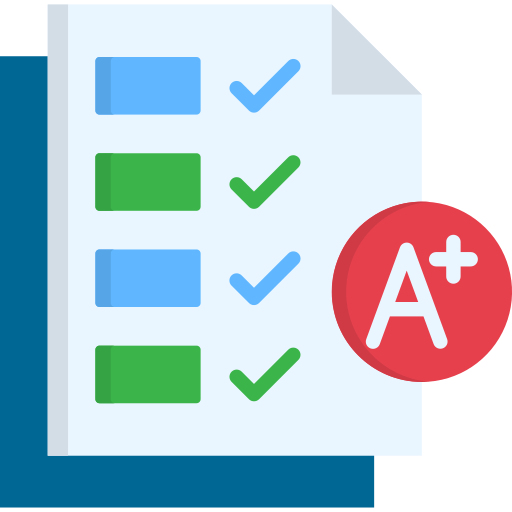Important tips for CBSE Class 10 Mathematics Exam tomorrow
Important tips for CBSE (Class 10) Mathematics Exam tomorrow
Estimated Read Time: 5 minutes
-----------------------------------------------------
More than 1.5 million students from India and 26 countries abroad are appearing for the CBSE Class 10 exams this year, and now it's time for the last exam - Mathematics. For many students, this exam can be a tough nut to crack, while for others, it may be an interesting challenge. The Mathematics paper has two variants: Standard and Basic. The syllabus for both papers is the same, but the difficulty level in the Standard paper may be slightly higher than that in the Basic paper. With only less than one day left, it's important to make the most of your time to ensure that you are fully prepared. Here are some tips from a maths teacher's perspective for last-minute preparation that can help you feel more confident and prepared for the exam and strategically attempt the question paper.
1.Revise chapter-wise important concepts and formulas properly: Identify(already identified) the important concepts and formulas from each chapter and revise them thoroughly. If possible you can solve only a few questions from each concept.
2.Do not learn anything new: Avoid trying to learn new concepts or formulas at this stage. It's better to focus on revising what you already know, rather than trying to learn something new.
3.Practicing past papers: Although you may not have enough time to solve previous year's question papers now, it is still advisable to go through them Practice past papers, solving a few important questions from previous year's papers can help boost your confidence and give you a sense of accomplishment. So, try to devote some time to going through the previous year's papers, even if you don't have time to solve them completely.
4. Be confident :You All have put in the effort and prepared well for the exam, don't let nerves or anxiety get in the way. Confidence is indeed very important, especially when it comes to exams. When you are confident, you are more likely to perform well and make fewer mistakes.
During the exam
As you already know that the question paper will have five sections and most importantly questions in the exam may not be directly from the textbook or what you have studied so try to understand the concept behind it and apply the principles that you have learnt.
?Section A has 20 MCQs carrying 1 mark each.
? Section B has 5 questions carrying 02 marks each.
?Section C has 6 questions carrying 03 marks each.
? Section D has 4 questions carrying 05 marks each.
?Section E has 3 case-based integrated units of assessment (04 marks each) with subparts of the values of 1, 1, and 2 marks each respectively.
Section A: MCQs
*Read the questions carefully and pay attention to details.
*Eliminate options that you know are incorrect.
*Don't spend too much time on any one question.
Section B: 2 Marks Questions
*Read the questions carefully and understand what is being asked.
*Show your work clearly.
*Double-check your answer before moving to the next question if you can.
For Section C and D
*Start with the questions you find easiest.
*Write the steps involved in solving the question.
*Use diagrams, graphs, and tables wherever possible.
Section E: Case-based integrated units of assessment
Don't get scared by lengthy case study-based questions. There may be some lengthy questions, but don't let them intimidate you. Stay calm and try to solve them step-by-step.
Additional points
1.Attempt easy questions first: Start with the questions you find easy, as this will give you confidence and save time.
2. Manage your time: Divide the time you have for each section and question, so that you do not miss out on any questions or spend too much time on a single question.
3. Show your work: While solving the problems, show your work clearly, so that the examiner can understand your thought process.
4. Writing: Writing neatly and cleanly is an important aspect of any exam, and the Maths exam is no exception. When you write neatly, it becomes easier for the examiner to read and understand your answers. This may result in better marks, as your answers will be easier to evaluate.
5. Double-check your answers: Once you have attempted all the questions, double-check your answers and ensure that you have not made any silly mistakes.
In conclusion, as a teacher, I can understand your feelings and reassure you that you have prepared well for this exam. As you enter the exam hall tomorrow, take a deep breath and believe in yourself. Remember that this exam may be tough, but you are tougher. You've got this!
Keep working hard, keep learning, and keep believing in yourself and the future is yours to conquer.
My best wishes and prayers to you All!
-----------------------------------------------------







